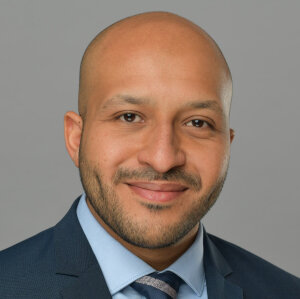
June 14-16, 2021
noiSE As SIgnal: finDing hEmo
- The SEASIDE Conference -
Why hemodynamics?
Although classically used to probe the hemodynamic consequences of neural activity, the measured signal in functional MRI and NIRS reflects a combination of several different modulations. Some of these are dynamic, widespread signals reflecting the influence of many physiological processes. The presence of these hemodynamic signals, which are ubiquitous in BOLD-based functional MRI data, has substantial methodological implications for the conduct and interpretation of functional MRI experiments.
In particular, the relative time lags of propagating hemodynamic signals as they traverse the brain parenchyma reflect cerebral perfusion and hemodynamics. Moreover, hemodynamic lags have found a practical application as a non-invasive measure of blood flow in cerebrovascular disease patients. This educational symposium will start with the basics of cerebrovascular physiology, anatomy, and imaging. It will then address the topic of hemodynamics-related low frequency oscillations, the techniques by which they are measured, and the challenges and opportunities that they present for neuroimaging as both a research and clinical tool.
Program
Full program here.
Code of conduct here.
DAY 1 - Monday, June 14th 2021
Session 1 - Moderator: Ahmed Khalil
13:00 to 16:00 UTC
Opening
Neurovascular anatomy - Kevin Whittingstall
Basics of cerebrovascular physiology - Joseph Fisher
CO2, O2, and the cerebral circulation - Suk-tak (Phoebe) Chan
Neurovascular coupling - Céline Matéo
Discussion
Session 2 - Moderator: Yunjie Tong
19:00 to 22:00 UTC
Peripheral physiology and brain BOLD - Catie Chang
Biophysical basis of fMRI “noise” - Thomas Liu
Pulse sequences and parameters - Ben Inglis
Introduction to time delay estimation - Blaise Frederick
Systemic LFOs and the CSF - Yunjie Tong
Discussion
DAY 2 - Tuesday, June 15th 2021
Session 1 - Moderator: Ben Inglis
13:00 to 16:30 UTC
Introduction to hemodynamic lags - Toshihiko Aso
Systemic LFOs and fMRI denoising - Sinem Erdogan
[Physiological] denoising for fMRI - Jonathan Power
Oxygen extraction mapping to improve care in cerebrovascular disease - Manus Donahue
Keynote 1 - Jean Chen
Discussion
Session 2 - Moderator: Blaise Frederick
19:00 to 22:30 UTC
Hemodynamics and cerebrovascular reactivity - Molly Bright
Hemodynamic lags in cerebrovascular disorders - Ahmed Khalil
Hemodynamic lags and neuropharmacology - Ioannis Pappas
Hemodynamic lags and cerebrovascular reactivity in TBI - Allen Champagne
Keynote 2 - Arno Villringer
Discussion
DAY 3 - Wednesday, June 16th 2021
Workshop - Moderators: Ioannis Pappas & Lia Hocke
13:00 to 13:30 UTC
rapidtide - Denoising fMRI data using low-frequency oscillation lags - Ioannis Pappas
13:30 to 14:00 UTC
rapidtide - Application in an example pathological population - Lia Hocke
14:00 to 14:30 UTC
happy - Introduction to cardiac extraction and denoising commands - Lia Hocke
14:30 to 15:00 UTC
Discussion
A practical guide showing rapidtide (low frequency oscillations) and happy (cardiac signal) to denoise fMRI BOLD data as well as tracking low-frequency oscillation lags in healthy and pathological populations, as seen in https://journals.sagepub.com/doi/pdf/10.1177/0271678X15608643.
Requirements
Software
For the tutorial, participants should have already installed
Python 3 (numpy>=1.16, scipy, pandas, scikit-learn, scikit-image, nibabel, nilearn, matplotlib, statsmodels, pyqt5, pyqtgraph)
The latest version of rapidtide: https://github.com/bbfrederick/rapidtide/tree/dev
Installation instructions:
https://rapidtide.readthedocs.io/en/dev/installation.html
3. FSL: https://fsl.fmrib.ox.ac.uk/fsl/fslwiki/FslInstallation
Data
Healthy data:
/your-rapidtide-folder/rapidtide/data/examples/src/sub-RAPIDTIDETEST.nii.gz (included with rapidtide installation)
Patient data:
Will be provided via Slack at the beginning of the conference
If problems arise during the installation, please contact us through the Slack channel beforehand.
Organizers
Dr. Ahmed Khalil
Charité Universitätsmedizin Berlin
Dr. Sinem Erdogan
Acibadem Mehmet Ali Aydinlar University
Dr. Blaise Frederick
McLean Hospital
Dr. Lia Hocke & Mr. Branick
McLean Hospital
Dr. Ben Inglis
UC Berkeley
Dr. Ioannis Pappas
UC Berkeley
Dr. Yunjie Tong
Purdue University
Dr. Hemo Deinamics
S.O.H.K.
Registration
How much does the symposium cost ?
Participation in the symposium is free. However we ask you to only register if you believe you will be attending, due to the limited number allowed on the Zoom. If you want you are also welcome to donate.
When do I get the Zoom link?
The Zoom link will be sent to you shortly before the first day of the symposium. Please do not share the link.
How can I ask questions about the talks?
You can post your questions to the Zoom Q&A or to the Slack channel (see above) during the talks as well as during the discussion sessions. The questions will be collected by the moderators and posed to the speakers.
Will the talks be uploaded?
Most, but not all the talks will be uploaded after the conference concludes and will be available via a link on this website.









